
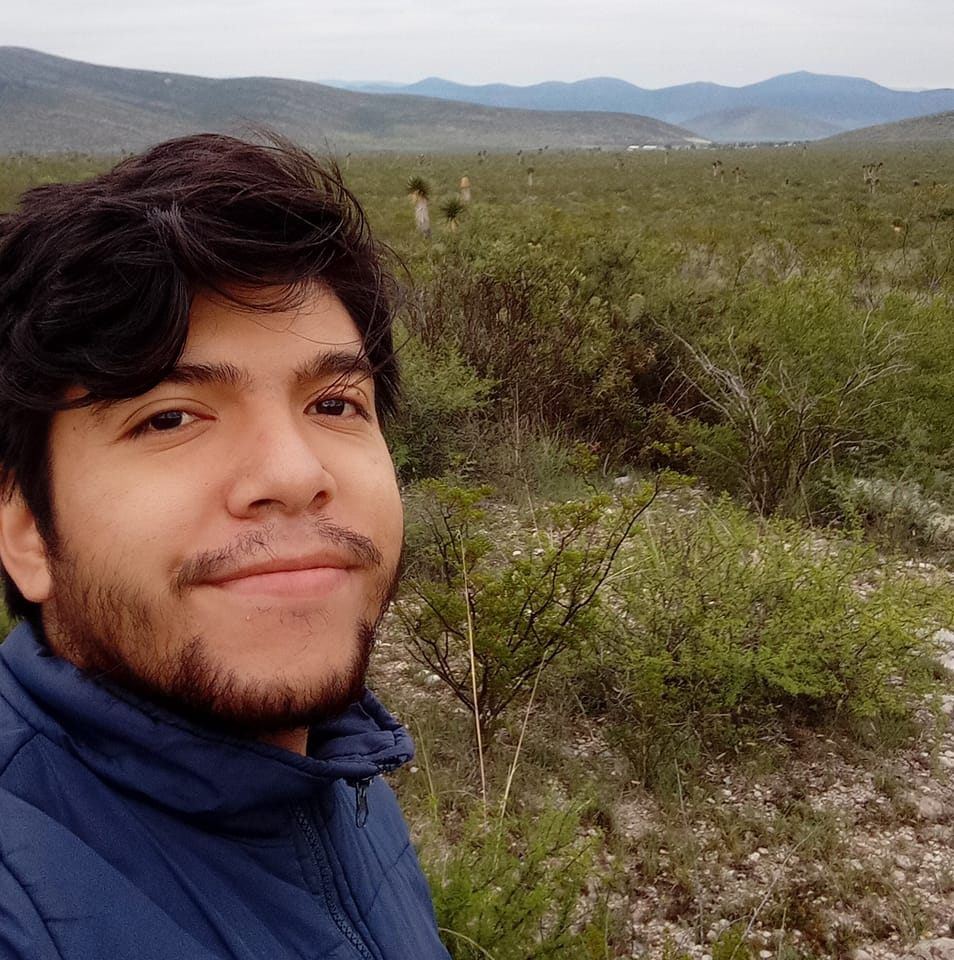 Issachar Leonardo López Cuamatzi
Issachar Leonardo López Cuamatzi
Universidad Veracruzana (Advisor: Dr. Dr. Cristina Mac Swiney)
2023 - NASBR 51 - Winnipeg, Canada
Issachar Leonardo López Cuamatzi completed his bachelor's and master's degrees at Benemérita Universidad Autónoma de Puebla and Universidad Veracruzana, respectively. He started studying bats in 2016, since then, his enthusiasm for knowing more about these mammals has never diminished. While his main research focus lies in the taxonomy and systematics of bats, he also maintains a broad interest in various aspects of their natural history, such as ecomorphology, and echolocation. Recently, he has developed an interest in documenting the influence of wind farms on bat populations with the intention of contributing to their conservation. During his master's program, Issachar investigated the hypothesis of multiple species within the Mexican Big-eared bat (Corynorhinus mexicanus) through a morphological and genetic approach, leading to the discovery of a new species for Mexico, previously unknown to science.

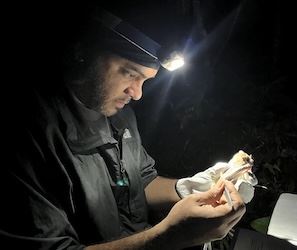 Daniel Zamora Mejías
Daniel Zamora Mejías
Instituto de Ecología, UNAM (Advisor: Dr. RODRIGO MEDELLÍN)
2022 - NASBR 50 - Austin, TX, usa
Daniel is a tropical ecologist, conservation biologist, professor, and researcher from Costa Rica. Currently, he serves as a professor and researcher at the University of Costa Rica. He earned both his Bachelor's (2010) and Master's (2016) degrees from the University of Costa Rica before completing his Ph.D. in 2021 from the National Autonomous University of Mexico. Daniel has contributed to several bat conservation projects in both Mexico and Costa Rica and actively participates in Bat Conservation Programs in both countries. Recently, he was a member of the team that designed priority action plans for the conservation of the Alto Golfo de California and The Pinacate Biosphere Reserve. Daniel's primary research focus lies in the intricate ecology of bat-ectoparasite relationships, covering various dimensions such as ecology, morphological variation, and phylogeography. In addition to his ongoing projects, Daniel is investigating the recognition of parasites as bioindicators and exploring cophylogenetic relationships between ectoparasites and their bat hosts. He also aims to develop local networks of individuals in small communities dedicated to the conservation and restoration of natural environments. Simultaneously, he involves students in these tasks to better prepare them for new challenges in science.

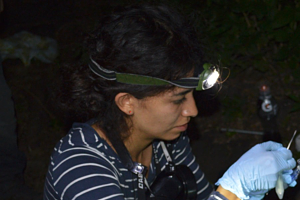 Yocelyn Gutiérrez Guerrero
Yocelyn Gutiérrez Guerrero
Instituto de Ecología, UNAM (Advisor: Dr. Luis E. Eguiarte)
2019 - NASBR 49 - KalaMAZOO, MI, usa
Yocelyn Gutiérrez is a PhD student from the Laboratory Evolución Molecular y Experimental, Institute of Ecology, Universidad Nacional Autónoma de México. She is passionate about genomics, transcriptomics and molecular evolution and is investigating the genomic trade-offs involved in the dietary shifts and evolution of the New World Leaf-nosed bats, using bioinformatics and evolutionary approaches. Yocelyn has developed bioinformatic tools to study the genomes, RNA-Seq and metagenomic data for mammals, with a particular enthusiasm for bats. One of her goals is to understand the genomic signatures and adaptations associated with the extreme nectarivorous diet that has recently developed in the Glossophaginae subfamily of bats. Her work has shed light on adaptation signatures associated with specialized diets, the complex evolution of sensory systems across the evolution of the Phyllostomidae family and parallel genomic signatures between Old World and New World bats with a nectar-fruit diet. Finally, biological conservation is a topic of high importance to her; she is collaborating on different projects related to genomic conservation in mammals and plants.

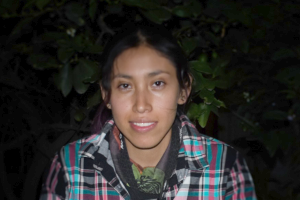 Aline Méndez Rodríguez
Aline Méndez Rodríguez
Universidad Autónoma Metropilitana, Campus Iztpalapa (Advisor: Dr. Ricardo López-Wilchis)
2018 - NASBR 48 - Puerto Vallarta, Jalisco, Mexico
Rodríguez did her bachelor´s degree in Biology at the Facultad of Estudios Superiores Iztacala of the Universidad Nacional Autonoma de Mexico. She did her master´s degree in Biology at the Universidad Nacional Autonoma-Iztapalapa, with an emphasis in population genetics and phylogeography of Mormoopids. She is interested in population genetics, systematic phylogenetics, barcoding, analysis of paternity and hybridization. These approaches have been applied mainly to bats which are her greatest passion.

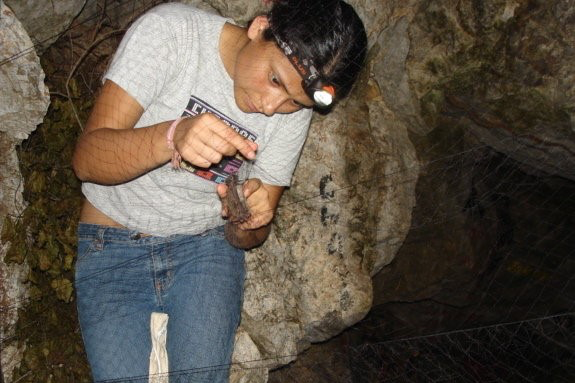 Stephanie Ortega García
Stephanie Ortega García
Instituto de Investigaciones en Ecosistemas y Sustentabilidad, UNAM (Advisor: Dr. Jorge Schondube)
2017 - NASBR 47 - Knoxville, TN, usa
Stephanie Ortega-García obtained her undergraduate and Master’s degrees in Science at the Universidad Nacional Autónoma de México (UNAM), where she graduated with honors. She did several research stays in international institutions including the Institute of Ecology and Systematics in Havana, Cuba, Trinity University in Texas, and the University of Kansas. Her research interests focus on climate change, macroecology and conservation physiology, with particular reference to small mammals. She was the head of the outreach chapter of a Mexican civil association dedicated to biological conservation. Among her contributions to science, she has published four peer-reviewed papers and has been part of organizing committees of different events and activities within scientific meetings.

 Beatriz Daniela Carmona Ruiz
Beatriz Daniela Carmona Ruiz
ENCB, Instituto Politécnico Nacional (advisor: dr. Jorge ortega)
2016 - NASBR 46 - San Antonio, TX, usa
Daniela Carmona's undergraduate thesis is entitled “Paternity and genetic relatedness in the social groups of the white bat of Honduras, Ectophylla alba.” Daniela uses modern molecular techniques, such as microsatellite loci, to examine the evolutionary forces that may act in the temporal social composition of bats at the roosting sites. Her areas of interest include studies on ecology and molecular biology of mammals, mainly cats and bats. She is particularly keen to learn techniques associated in monitoring mammalian populations to contribute to preserving habitats of endangered species. Towards this end, she has an interest in geographic information systems (GIS), working with specialized software like ArcMap, DIVA-GIS and Maxent, and designing maps of potential distribution for biological species. In the future she plans to combine both molecular and geographic tools to have a better understanding of native Mexican species.

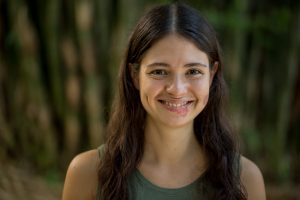 Crysia Marina Rivero Hernandez
Crysia Marina Rivero Hernandez
Instituto de Ecología, UNAM (Advisor: Dr. Rodrigo Medellín)
2015 - NASBR 45 - Monterey, Ca, usa
Marina Rivero studied Biology at the Faculty of Sciences at UNAM, Mexico. She participated in several conservation and research projects on jaguars, bats and other mammals. Her thesis focused on documenting seed dispersal by tent-making bats, as well as tent density and habitat selection. Her work highlighted the ecological role of bats in the regeneration of tropical forest and the importance of the roosting behavior in tent-making bats. She conducted research projects in the Selva Lacandona and the Sierra Madre in Chiapas with tapirs, white-lipped peccaries and jaguars.

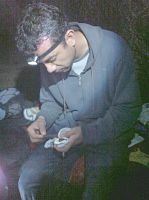 Roberto Salazar Trejo
Roberto Salazar Trejo
Instituto de Ecología, UNAM (Advisor: Dr. Luis E. Eguiarte)
2014 - NASBR 44 - ALbany, ny, usa
Roberto-Emiliano Trejo-Salazar is a PhD student from the Laboratory Evolución Molecular y Experimental, Institute of Ecology, Universidad Nacional Autónoma de México. His interests revolve around the evolutionary ecology of bats, and particularly nectar-eating bats. Nowadays he is developing a phylogeographic hypothesis for Leptonycteris yerbabuenae, but Villa's award was obtained with previous work titled: "Divergence Times of Phyllostomidae: Origin of Nectarivory". He is interested in dietary evolution of Phyllostomidae family bats. Roberto is working with next-generation sequence (SNP's) to understand part of evolutionary history of Leptonycteris bats. One of his main goals is to infer evolutionary and ecological relationship among Agave and Cactacea plants and Glossophaginae bats. Roberto has been part of the Bat-friendly project for the conservation of mezcal and tequila's agaves that provide resources for nectar-eating bats along their migratory routes.

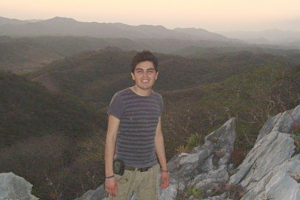 Giovanni Hernández Canchola
Giovanni Hernández Canchola
Facultad de Ciencias, UNAM (Advisor: Dra. Livia León)
2013 - NASBR 43 - San José, Costa Rica
Giovani Hernández-Canchola Giovani obtained his Bachelor’s degree from the Universidad Nacional Autónoma de México (UNAM). As an undergraduate he was an outstanding student, very active in research, developing field work in tropical regions and mountains of Mexico, especially the Pacific slope. His main research interest is molecular systematics and conservation genetics of bats, and he developed as an undergraduate dissertation a phylogeographic analysis of the bat genus Sturnira.

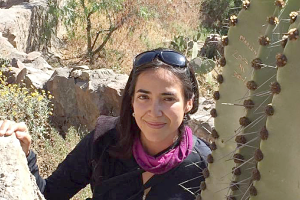 Mariana Zarazúa Carbajal
Mariana Zarazúa Carbajal
Instituto de Investigaciones en Ecosistemas y Sustentabilidad, UNAM (Advisor: Dr. Julieta Benítez)
2012 - nasbr 42 - San Juan, Puerto Rico
Mariana Zarazúa finished undergraduate studies in biology at Universidad de las Américas Puebla UDLAP (2008) and a Masters in biological sciences in the “Posgrado en Ciencias Biológicas” program, at IIES-UNAM (2012). During this period, she joined a research project on the frugivorous and nectarivorous bat ensembles in the tropical dry forest and riparian strips of Chamela, Jalisco, located in western Mexico. She did her PhD in the same program at IIES-UNAM. Her research is about understanding the ecological and cultural factors that influence the human management choices regarding fauna, including bats, in localities of the Tehuacán-Cuicatlán Valley area, in central México.

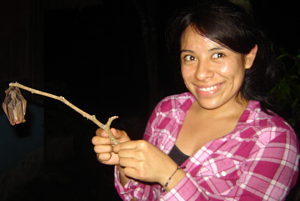 isabel arely Hernández Dávila
isabel arely Hernández Dávila
ENCB, Instituto Politécnico Nacional (advisor: dr. Jorge ortega)
2011 - nasbr 41 - Toronto, Canada
Isabel Arely Hernández Dávila is a biologist from the National Polytechnic Institute (IPN) of Mexico. Since the beginning of her bachelor studies, she was very interested in molecular biology. After taking a course on mammals, she did her thesis under the supervision of Dr. Jorge Ortega Reyes. Her project focused on identifying the genetic diversity of Phyllostomid bats from the Yucatan Peninsula by using a standard DNA barcoding region from the mitochondrial cytochrome c oxidase. She found high intraspecific variation in Desmodus rotundus and Artibeus jamaicensis, suggesting the possibility of cryptic species. She hopes to continue studying mammals using molecular methods.

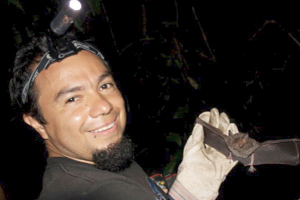 Jorge Ayala Berdón
Jorge Ayala Berdón
Instituto de Investigaciones en Ecosistemas y Sustentabilidad, UNAM (Advisor: Dr. Jorge Schondube)
2010 - nasbr 40 - Denver, Co, usa
Jorge Israel Ayala Berdón is interested in the ecology and physiology of bats. His research is mainly related to the study of the digestive physiology, echolocation, genetics and the regulation of metabolism (which includes the study of the basal metabolic rate, use of torpor and hibernation) of nectar and insect-feeding bats. He was also studying the interactions of bats with their parasitic flies. He worked in many ecosystems of Mexico, with a main study site located in La Malinche National Park, a federally protected area located in central Mexico. This site is very important for the country because it holds a high species diversity and endemism.

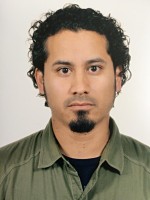 Fabricio Villalobos
Fabricio Villalobos
Centro de Investigaciones en Ecosistemas, UNAM (Advisor: Dr. Héctor T. Arita)
2009 - nasbr 39 - Portland, Or, usa
Fabricio Villalobos is a Mexican (macro)ecologist interested in bat biodiversity patterns across space and time. In particular, he studies geographic patterns of biodiversity and the structure of ecological communities with the aim of understanding the causes that originate, maintain and alter such patterns. To do so, he relies on ecological and evolutionary approaches combining information on bats’ geographical distributions, morphology, and phylogenetic relationships.

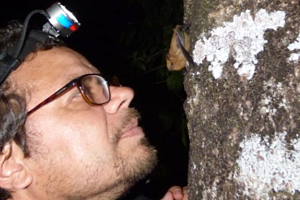 Bernal Rodríguez Herrera
Bernal Rodríguez Herrera
Instituto de Ecología, UNAM (Advisor: Dr. Rodrigo Medellín)
2007 - nasbr 37 - Merida, mexico
Bernal Rodríguez Herrera is currently a professor at the School of Biology of the University of Costa Rica (UCR) and has been since 2007, where he teaches courses related to the ecology and conservation of mammals. He was recently appointed as the first director of the Center for Biodiversity and Tropical Ecology Research (CIBET-UCR). In addition to the Bernardo Villa Award (2007), he has won the Whitley Award (2012) and more recently, the Aldo Leopold of the American Society of Mammalogist (2019). He is part of the Board of Directors of the National Museum of Costa Rica. He was the general coordinator of the Latin American Network for the Conservation of Bats (RELCOM). He has participated in courses about bats in several Latin American countries and in Kenya. Also, he has carried out research in different regions of America and is the author of more than 80 scientific articles, including two books.

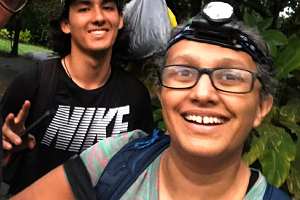 Ragde Sánchez
Ragde Sánchez
Instituto de Ecología, UNAM (Advisor: Dr. Rodrigo Medellín)
2006 - nasbr 36 - Wilmington, NC, usa
Ragde Sánchez obtained a degree in Biology from UAEMex, and a Master's degree in Biological Sciences from UNAM. She has worked in the private sector, in non-governmental organizations and in private education at the elementary, middle, high school and university levels. Throughout her professional activity she was involved in various projects related to education, conservation and community development. She worked in environmental education in banana communities in the Caribbean of Costa Rica, as part of a corporate responsibility project.


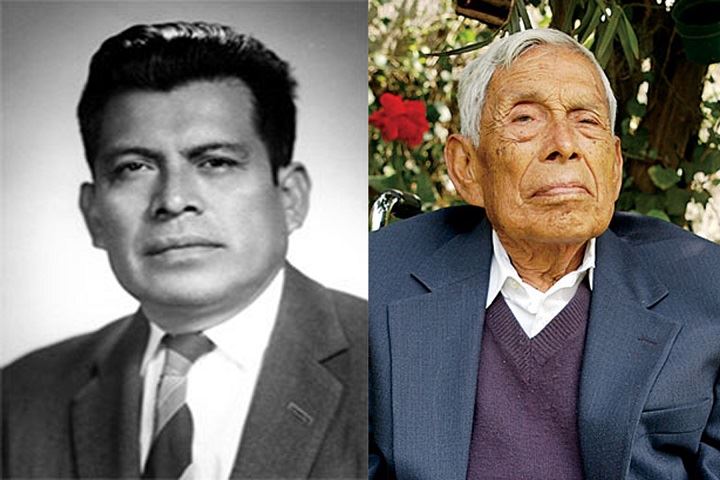
 Issachar Leonardo López Cuamatzi
Issachar Leonardo López Cuamatzi  Daniel Zamora Mejías
Daniel Zamora Mejías Yocelyn Gutiérrez Guerrero
Yocelyn Gutiérrez Guerrero Aline Méndez Rodríguez
Aline Méndez Rodríguez Stephanie Ortega García
Stephanie Ortega García Beatriz Daniela Carmona Ruiz
Beatriz Daniela Carmona Ruiz Crysia Marina Rivero Hernandez
Crysia Marina Rivero Hernandez Roberto Salazar Trejo
Roberto Salazar Trejo Giovanni Hernández Canchola
Giovanni Hernández Canchola Mariana Zarazúa Carbajal
Mariana Zarazúa Carbajal isabel arely Hernández Dávila
isabel arely Hernández Dávila Jorge Ayala Berdón
Jorge Ayala Berdón  Fabricio Villalobos
Fabricio Villalobos Bernal Rodríguez Herrera
Bernal Rodríguez Herrera  Ragde Sánchez
Ragde Sánchez